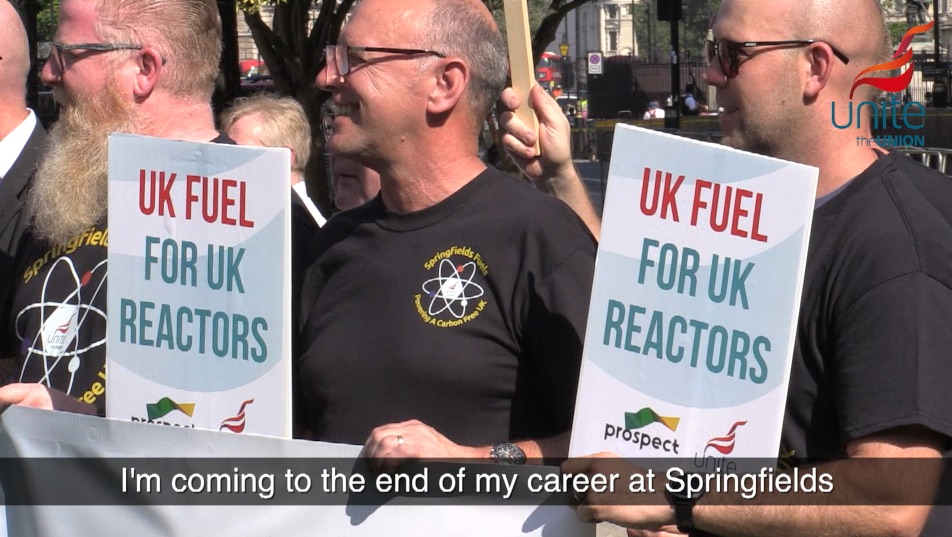Magnox contracts â€favouritism’
Unite has called on the government to investigate the Nuclear Decommissioning Authority (NDA), after a high court ruled it used favouritism to award a ÂŁ8.4bn private sector contract – which has since ballooned to more than ÂŁ10bn – to clean up Britain’s first generation of nuclear power stations.
In July, the High Court ruled the 2014 contract awarded to Cavendish Fluor Partnership (CFP) by the NDA to clean up the UK’s 12 Magnox nuclear reactors should not have been given. The judge said the NDA failed to treat bidders equally and “manipulated” rules to allow CFP’s participation in the process.
The successful High Court challenge came from failed bidder EnergySolutions, which is in line to receive damages running into tens of millions of pounds. Other unsuccessful bidders are now considering legal action, meaning costs to the taxpayer will likely skyrocket.
Since the court ruling the scandal has escalated, with the Times newspaper reporting that CFP has told the NDA that their original estimate has increased by 18 percent to more than ÂŁ10bn.
Unite national officer for energy Kevin Coyne called for Gregg Clark, secretary of state for business, energy and industrial strategy, to launch an urgent investigation “into the way the NDA conducts its affairs.”
“It is clear that the NDA has a number of serious questions to answer about the lack of transparency in the awarding of the contract to CFP and in relation to the rapidly escalating costs of the â€clean up’ contract, the bill for which will have to be picked up, ultimately, by the taxpayer,” Coyne said.
“These questions include the tortuous bidding system, the removal of a company, EnergySolutions that had done the job well for over 10 years and the cost implications which had been proven to be technically non-compliant.”
Around 3,000 employees will work across the 12 Magnox sites, which were built during the 1950s and 1960s, removing spent fuel and toxic waste as well as demolishing radioactive buildings. Coyne said the debacle now raised the question of whether staffing levels are safe, given the “massive redundancies” that occurred when CFP took over.
“Unite wants to know whether this cost-cutting was really necessary and are the new staffing levels appropriate for the job. The government forced through legislation designed to cut the terms and conditions of Magnox employees, including exit payments and is now seeking to save a large tranche of money from an appropriately funded pension scheme,” Coyne said.
“A loyal workforce that has worked in a particularly hazardous job have been treated scandalously and are subject to mean-spirited job cuts and conditions; changes which are as a result of Treasury-driven cost savings. The result will be a reduction in morale and, consequently, there must be concerns about the future of nuclear safety as well.”
Unite, which has 45,000 members in the energy sector, said that the government was at â€sixes and sevens’ over future energy policy, particularly in light of the recent decision by prime minister Theresa May to put the ÂŁ18bn Hinkley Point nuclear power station â€on hold’.
 Like
Like Follow
Follow

